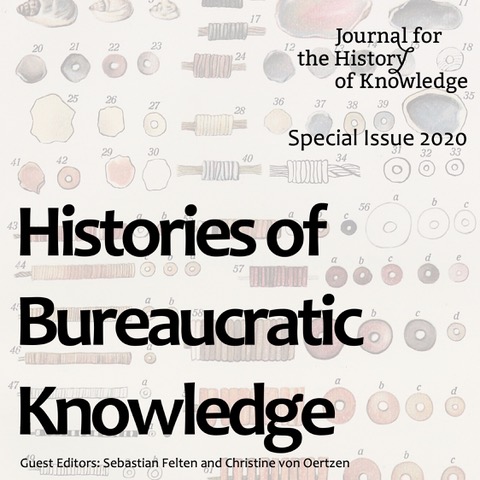Mar 11, 2021
Histories of Bureaucratic Knowledge
- 18:15 to 19:45
- Book Launch
- Dept. Daston
- Several Speakers
- Sebastian Felten
- Christine von Oertzen
We invite you to celebrate the publication of Histories of Bureaucratic Knowledge, the inaugural Special Issue of the Journal for the History of Knowledge. This collection of nine case studies develops a new approach to analyzing bureaucratic procedures by focusing on the epistemic dimensions of rule following and routines. It is the collective result of a working group of historians who focus on different periods and regions, such as the medieval Latin West, Spanish America, Qing China, and the Ottoman Empire. Together, we make the case that understanding bureaucracies in the past is best done by attending to the knowledge processes that they have enabled and by which they have been sustained. By doing so, we aim to enrich the emerging field of history of knowledge and demonstrate how historical epistemology can be made productive for areas otherwise well known to political, social, and cultural historians.
Join the guest editors, authors, and journal editors for a conversation and for a virtual toast!
Contact and Registration
Please register by sending an email to bureaucracies@mpiwg-berlin.mpg.de by March 7, 2021.

